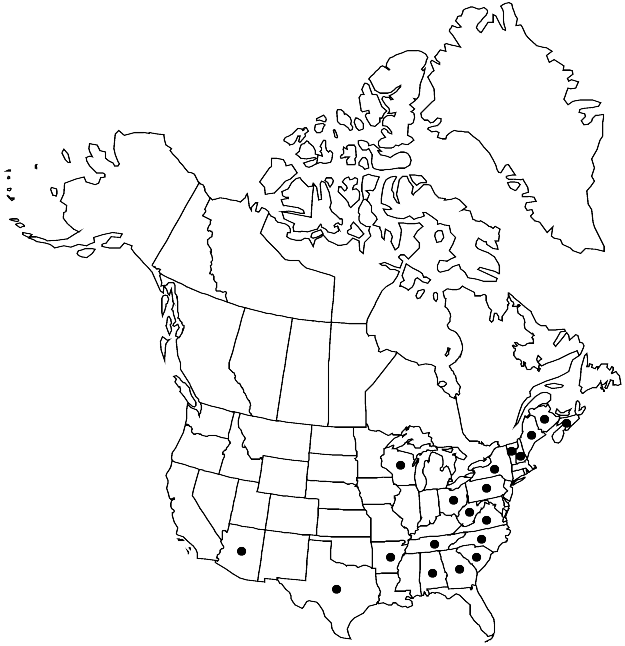Leucodon brachypus
Bryol. Univ. 2: 210. 1827.
Plants medium-sized to large, dull. Stems elongate, loosely curved to straight and rigidly spreading, not julaceous, fragile branchlets absent from distal leaf-axils. Branch leaves erect-appressed to secund, plicate, 1.5–2.2 mm; apex acute to acuminate; apical laminal cells smooth abaxially; terminal cell isodiametric to elongate, concolorous to hyaline. Perigonia common. Perichaetia common. Capsule immersed to barely exserted, ovoid to pyriform, sometimes slightly asymmetric, to 2 mm. Spores 44–52 µm.
Phenology: Capsules mature Sep, Nov–Jul.
Habitat: Tree bark, logs, stumps, rock, upland and montane forests
Elevation: low to high elevations (0-2000 m)
Distribution

N.B., N.S., Ala., Ariz., Ark., Ga., Maine, N.H., N.Y., N.C., Ohio, Pa., S.C., Tenn., Tex., Vt., Va., W.Va., Wis.
Discussion
Leucodon brachypus is easily distinguished from L. julaceus by its longer, plicate leaves and usually immersed or emergent capsules. The species is less common and less widespread than L. julaceus and has a more northern range. The species is distinguished from L. andrewsianus by its terminal laminal cells 22–19 µm rather than 35–60 µm. The commonly present gametangia and sporophytes, absence of fragile axillary branchlets, and relatively short terminal cell on the leaf apices distinguish L. brachypus from the similar L. andrewsianus. In L. brachypus, gametangia, sporophytes, or both are commonly present. The ranges of L. brachypus and L. andrewsianus overlap, and the two species rarely grow intermixed. Leucodon brachypus occurs at sea level in the northern part of its range, but above 300–400 m only in the mountains to the south.
Selected References
None.